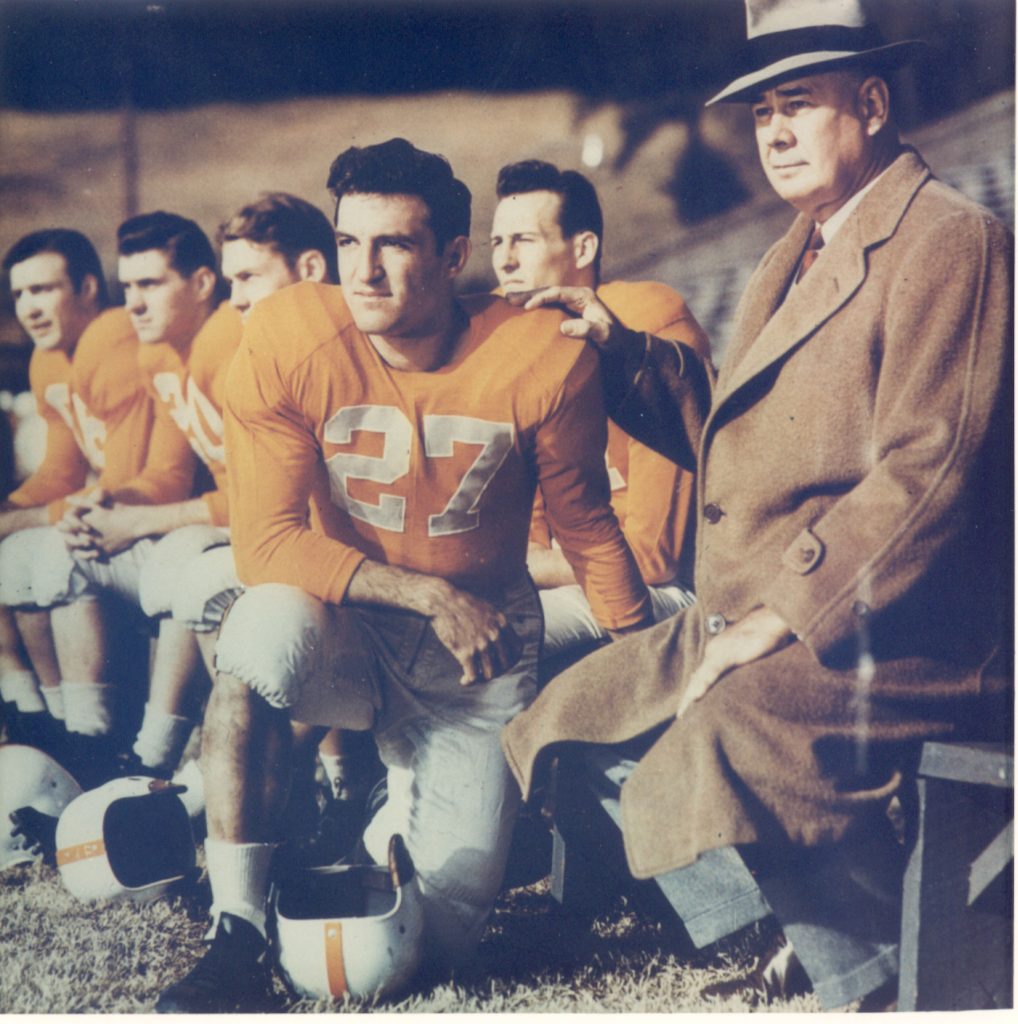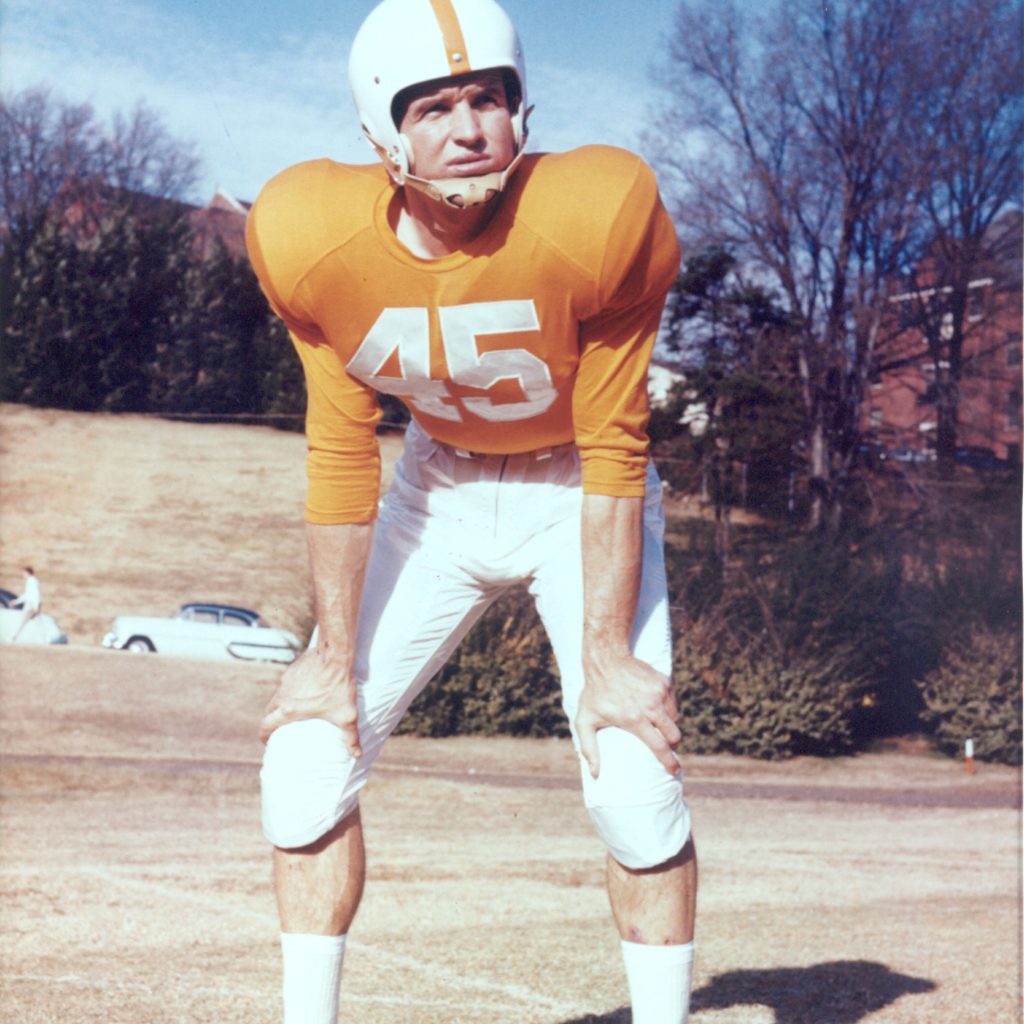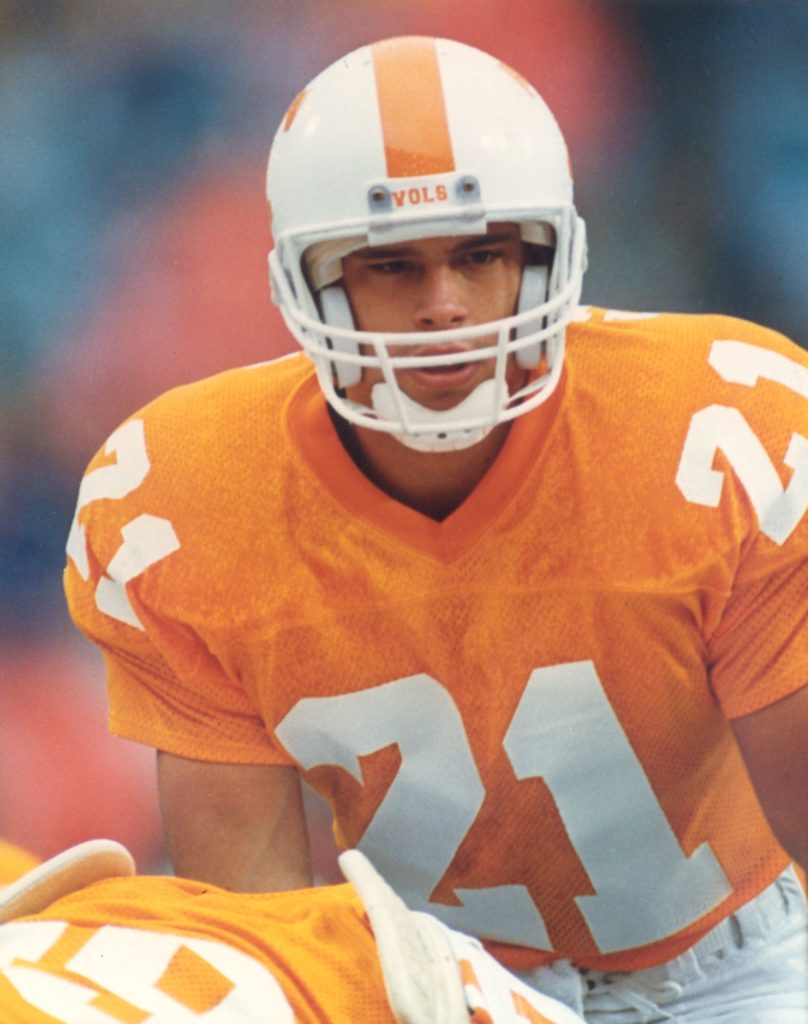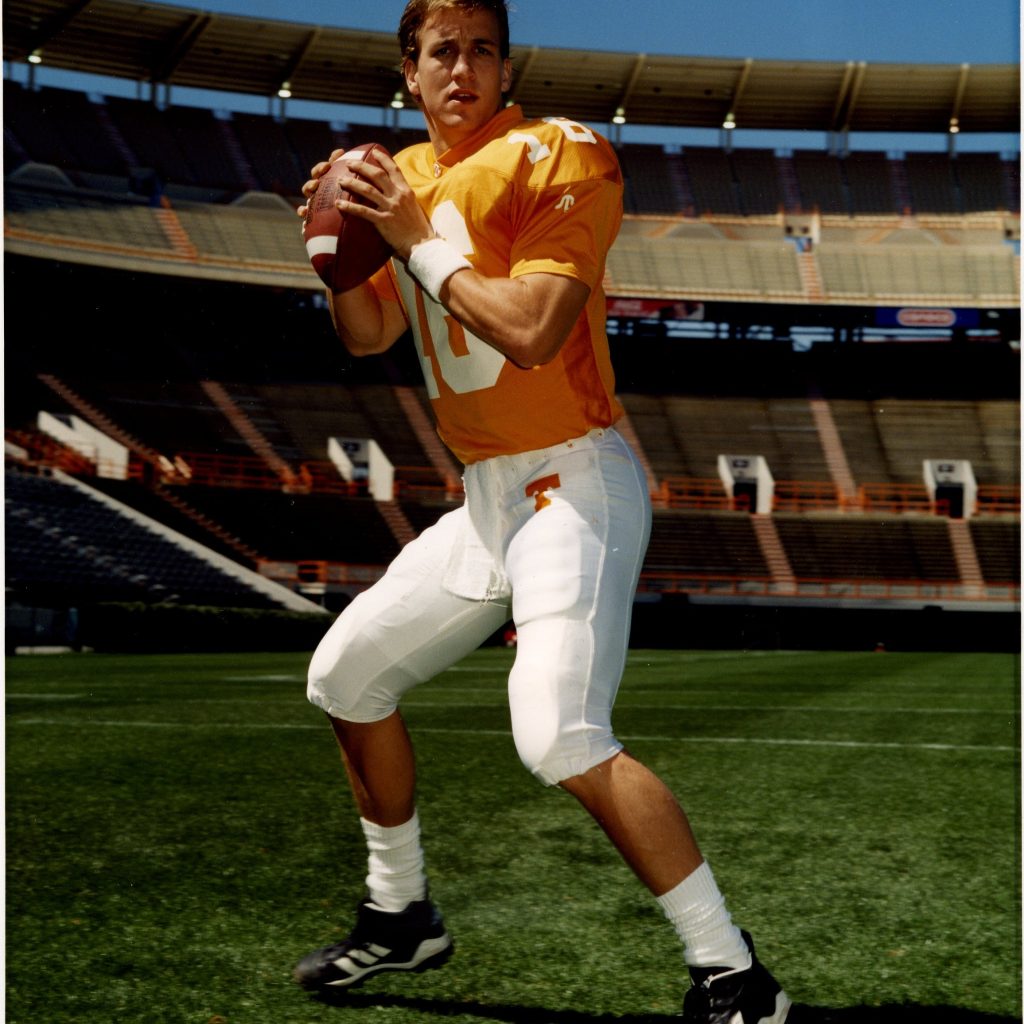After all these Years, the Vols Deserve a Heisman Trophy Winner
Jurisprudence is simply a means to an end. Justice is what we want, and that applies to college sports. Because it is September, and, in the words of the late Bobby Denton,
“It’s football time in Tennessee,” this editorial comment addresses the decades of injustices imposed upon the orange-clad Volunteers by the voters for the Heisman Trophy.
First, let’s use the history of Vol football to provide context. The University of Tennessee has sponsored the program since 1891–when Benjamin Harrison was the president of the United States. Over the years, and even counting the disappointments in the last decade plus, the Vols have compiled a record of 854 wins, 406 losses, and 53 ties, good enough to place our gridiron heroes at number 11 in all-time winning percentage among all colleges and universities. With 52 bowl appearances, the Vols rank third in the nation. Further, Tennessee places second in all-time winning percentage in the SEC—you can guess who stands first, but that is another story. With 16 conference championships and six national titles, surely the Volunteers have at least once fielded the best player in the country. Not so, according to those who have chosen the winner of the Heisman trophy.
In fairness (which has no place in a column about injustice), the Heisman, named after legendary coach, John Heisman, was not awarded by the Downtown Athletic Club in New York until 1936. The criteria for selection? “Outstanding performance which best exhibits the pursuit of excellence with integrity,” the Club says. “Winners epitomize great ability combined with diligence, perseverance, and hard work.” Sounds good. Our local pigskin heroes have had no shortage of candidates. Let’s take a look at only those Vols who finished as high as second in a final tally for the Heisman.

Hank Lauricella, who played tailback in General Bob Neyland’s single wing offense for the 1951 National Championship team (bowl games did not count in the polls in those days), finished second in the voting for the Heisman. A first team All-American, Lauricella rushed, passed, and punted for the Vols—a genuine triple threat—as he led the orange to a 10-0 regular season record. Dick Kazmaier of Princeton, however, somehow won the trophy. His team was undefeated as well, but is having beaten such “powerhouses” as Harvard, Yale, Lafayette, and Dartmouth impressive? Given the level of Kazmaier’s competition surely should have served as a disqualification. Of course, no Ivy League player has won the Heisman since that year. A Princeton halfback over a national champion? To quote fictional prison escapee “Pete” from the movie O Brother, Where Art Thou?, “That don’t make no sense!”

For fans of the Big Orange, it still hurts to remember the aftermath of the 1956 season. Coached by 1938 Tennessee All-American end, Bowden Wyatt, the team defeated all 10 of its regular season foes, including SEC runner-up Georgia Tech in a classic game at Grant Field in Atlanta. Johnny “Drum” Majors, the SEC player of the year as a junior and a senior, was, some believed, the favorite to win the Heisman. Barely nosed out by Oklahoma in the final poll for the national championship, the Vols and its athletic department had every right to promote its All-American tailback, who had not only rushed, passed, and punted, but had played outstanding defense in that magical year. Once again, fate intervened. Paul Hornung, the quarterback for a Notre Dame team that won two games in the fall of ‘56 and lost eight, won the trophy in a close vote. He had thrown for all of three touchdowns that season and was intercepted on 13 of his passes. Some might say that Hornung, who later starred as a halfback for the Green Bay Packers, proved his worth in the NFL. Well, by that standard, Jim Brown of Syracuse, a three-time MVP in the NFL, won rushing titles in eight of his nine years with the Cleveland Browns. Most experts classify him as the best running back of all time. In the 1956 Heisman vote, Brown finished fifth. Just for the record, Majors led the Vols in rushing and in passing and earned an excellent pass efficiency rating of 157.4. By comparison, Hornung, the last player to play for a losing team and win the trophy, had a 108.0 rating. Not close. No justice.

In 1993, the Vols having long since abandoned the old single-wing formation when the tailback did the passing, junior quarterback Heath Shuler finished a distant second to Florida State’s Charlie Ward in Heisman balloting. Passing for over 2,300 yards in the fall of 1993, Heath threw for 25 touchdowns with only eight interceptions, breaking every single season record in Tennessee football history. The one-loss Seminoles, however, won the National Championship. Ward threw for over 3,000 yards with 27 touchdowns. Under those circumstances, it’s hard to argue that Shuler, also a gifted runner, should have won over Ward, but in almost any other year until then, his stats would have warranted the award. Had Heath played his senior year instead of going pro, the Bryson City native would have been the odds-on favorite for the trophy. Instead, a running back by the name Rashaan Salaam of Colorado garnered the Heisman. Does anyone remember him?

The year 1997 is the last time many Tennessee fans, including yours truly, watched a televised Heisman Trophy presentation. After choosing to stay for his senior year, Peyton Manning threw for record settings of 36 touchdowns and almost 4,000 yards while leading the Vols to an 11-1 regular season record, including its SEC Championship game against Auburn. A consensus All-American, he won the Maxwell Award as the best player in college football, the Davey O’Brien Award as the best passer, the Johnny Unitas Award as the best quarterback, and the Best College Football Player ESPY Award. Nonetheless, he finished second in the Heisman vote, upset by Michigan’s Charles Woodson, the only defensive player to ever—that is, ever, before or since—to win the trophy. Now that result truly stands out as an injustice. A dose of jurisprudence, like an appeal to a higher body, might have corrected the wrong, but such as it is. Peyton, of course, was the number one pick in the NFL draft some five months later and went on to a Hall of Fame career. As to “diligence, perseverance, and hard work,” Heisman criteria, he had no peer.
Parenthetically, and just to add insult to injury, yet another snub pains fans of a former quarterback for the Oklahoma Sooners, one who just happens to serve today as the head coach of the University of Tennessee. In one year, Josh Heupel appears to have rescued a moribund program from the depths of 2020 and inspired new hope among the Vol faithful. Under those circumstances, it is easy for Volunteer fandom to overlook his playing career. As a senior in 2000 under Coach Bob Stoops, Josh passed for over 3,600 yards with a 136.4 efficiency rating and finished a close second to Chris Weinke in the Heisman vote. Weinke the 28-year-old Florida State quarterback squeaked by with a vote of 1,628 to 1,552. Of note, a 22-year-old Heupel, the consensus All-American who had been named Quarterback of the Year, gained a measure of revenge in the National Championship game that season, leading his team to a victory over the Weinke-quarterbacked Seminoles. Weinke, who after high school spent six years in the baseball minor leagues with the Toronto Blue Jays organization, is the oldest player to have ever won the Heisman. Somehow, the Heupel oversight, “Don’t make no sense.”
Maybe it’s this year, the next, or even a decade or half century after that, but there can be no justice until Tennessee can boast its first Heisman Trophy winner. Go Vols!

Comments are closed.